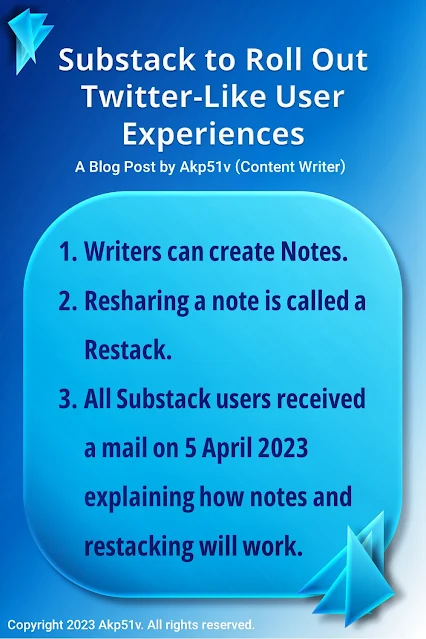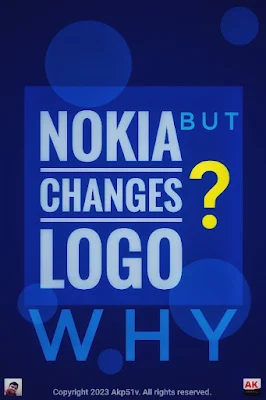Multitasking - Its Nature and Prevention | SMD Akp51v
Do you like to multitask? Isn't it beautiful to apply for one job description and become an entire department? How gorgeous! In its nascent phase, the concept of multitasking worked well for computers and machines.
But humans are complex. Yes, you might have this human body that seems like a machine. Still, you know better.
We have emotions, thoughts, opinions, and perspectives. And nobody is a fan of boredom. So, we struggle. I struggle too; with the shallow repetitions devoid of any soul or humane sensitivity.
Now, you could use the co-called multitasking for preventing boredom. Then, you get the "thrill" out of your life. It is as fun as unpaid overtime. Wonderful, right?
Productivity or Hidden Hyperactivity?
Exactly what are you achieving by multitasking? At least in its theory, you do more tasks in the same timeframe. And these tasks might differ from each other drastically. Thus, you could get a lot of excitement and energy drain when you end your multitasker mode.
Also, you might need to multitask if your time limit is approaching. In this case, I am completely okay with an occasional high-stress boost.
But if you keep repeating this behavior, would you stay sane and composed? I highly doubt it.
Besides, are you multitasking or exhibiting a hyperactive routine? No, being full of life and positive energy is not a problem on its own. Of course, everyone knows that one person who stays super-active all day. Now, you know that I am not discussing those personalities.
The word "Hyperactivity" could mean a set of harmful and fast behaviors that might hurt your brain, body, or coworkers for real. And this is my definition for this post.
Your To-Do Lists are not enough
A list of your tasks is just that - a list of random activities without any priority. Due to this reality, you must understand that a To-Do List is different from your priorities. Also, you should audit your To-Do Lists for the low priority activities.
Try to remove them. I am not kidding.
Sometimes, you indulge in multitasking because of a pending list of tasks. As you focus on finishing all the tasks just for the sake of self-gratification, you lose sight of relevance. After all, the concept of strategic retreat has its practical applications.
And abandoning your low-value pending tasks is one of the use cases for the Strategic Retreat concept.
Multitasking Affects Your Brain and Body
Quick question, "What will happen if you keep using your bike or equipment for a long time?" Correct, your engine gets hotter and equipment wears fast. On a similar principle, think about your brain and body. Here, you are exploring multitasking behavior. So, visualize that.
A quick search is enough to arrive at the following insights.
- Multitasking can change your brain structure.
- You might experience pain in your neck, back, eyes or wrists.
- Chances of dehydration increase because of multitasking.
- Many tasks could have no significant impact on your end outcomes.
- You might lose interest in your work due to this overload.
- It is possible that your multitasking is a symptom of poor management skills.
- Or, a serious emotional problem could be manifesting as a hyperactive workflow.
Bypassing all the scientific and technical jargon, you can be sure about two effects of multitasking.
Firstly, the effect on your overall health can be mild or chronic depending on your personality type, tasks, and timeframe. And you should seek professional help if you feel so. Do not let anyone prevent you from a good counseling session. In the end, your mind is your private asset. And it deserves periodic audits as well as maintenance.
Secondly, your relationships and career might be in danger due to your multitasker image.
Can multitasking harm your relationships and career?
This is a tricky question. Especially, in this age of the "Can-Do" attitude in all job descriptions, most of us are conditioned to confuse sincerity with over-working. And most of the excess workload is a result of your inefficiency or systemic over-documentation.
Long story short, you cannot attend a hundred meetings each day without superficial chatter. After saying goodbye to your office, the holy traffic and noisy crowd await you.
By the time you reach home, your kids go asleep. And before you could set the alarm, your phone starts singing. Despite all the exhaustion, you open your laptop. Because the gods of over-documentation have rewarded you with somebody else's pending assignment.
Lucky you! All the best with your honeymoon with the printers.
If all this drama does not destroy your relationship with your spouse, children, neighbors, and coworkers... you are a legend! You are a saint! And you should seek a second opinion if you are not thinking about a job change.
The Moral of Today's Post - Avoid Multitasking
Saying that is easy, right? But realizing a low-stress work environment is tough. I can write a thousand more words about it. Yet, nothing will change in your life. Should I rent a posh bungalow and formal suits? Perhaps, the "guru" version of Akp51v would help you preach escapism.
Jokes aside, your situation is specific to you. And this finale can include the insights that have helped me well enough. But you must create your techniques instead of chasing the ready-made answers.
1 | Limit the Number of Activities Per Unit Time
Yeah, this is a no-brainer. And it seems so obvious when you are sane. Believe me when I say this:
"Sometimes, you are not aware that you are multitasking. Well, this could happen for a plethora of reasons. But the key here is to stop yourself from working on too many tasks." - Akp51v
Now, you cannot get a fixed number from any website, eBook, or course. So, you must think about which activities are the most valuable ones. Here, I would like to mention the concept of Priority Matrix as a passing remark. And productplan.com has an awesome article about the priority matrix.
Still, you have to scan and optimize your tasks to concentrate on one task at a time.
2 | Control your Body Movements
Another case of multitasking intuitively is related to your body language. While increasing your on-job productivity is a good ambition, do not forget the ergonomics. Here, ergonomics stands for the science of your interaction with your tools and work environment.
And it helps you improve your efficiency as well as avoid workplace hazards. You can learn about it from this article on ergonomics.org.uk.
Thus, you should watch out for too fast or sporadic body movements. Also, do not use many tools in a short time duration if possible. Try to walk slowly and take some tiny breaks. Of course, you must avoid staying in the same position for too long.
In short, if you stay aware of your body movements, you can improve your self-control. Then, the chance of multitasking decreases.
3 | Set your Device on Do Not Disturb (DND)
Yes, this solution does not work for everyone. Because in many professions, you must be reachable all the time. In this situation, using DND is out of the question. But you can avoid looking at your phone again and again.
Certain individuals develop a habit of checking their phones even without a reason. And the best methods include keeping your devices away from you. By the way, doing this is impossible if your work device is your phone!
So, one possible technique is to persuade others from calling you more than once. Also, you can block the notifications selectively instead of using an all-out DND mode.
Simply put, you must use your devices to perform a specific task. And rejecting the triggers of over-information is your best bet.
4 | Switch your job or industry
Professional life and personal well-being can never be distinct. Be it a bit harsh but that is the reality of your adulthood. Hence, you have to manage the overlap between those two identities of your being. As you are aware, this section discusses your workplace compatibility.
When you were young, nobody told you a simple concept. "Your academic knowledge and your job expectations are destined to be irrelevant to your actual job activities."
As you complete your education or entry-level job, you have more options to experiment with. So, do not settle for a certain position or job type. Yes, it is fun to start earning your money yourself. And employee loyalty has some benefits for you and your employer.
But as you go through your daily routine, you notice the incompatibility of your personality with the job duties. And this is normal for most workers.
From an opportunity cost point of view, you could be doing a job more in line with your emotional needs and personal strengths. Because of your current profession, you might be missing out on a less "multitasking" job.
After all, some careers could make you multitask simply due to the nature of the industry or business models.
Thus, if nothing else works to stop you from the madness of multitasking, it is probably time to furnish your CV and update your LinkedIn Profile. Still, this approach should b your "last resort" option. Because changing your job, career or industry has some real costs as well.
Closing Section
I used to like multitasking. Why? Because I would write so much, submit so much and work so much. And when you are young, you take everything for granted. This includes your family ties, health condition, and earning potential.
Though confidence and positivity are great, they can blind you to the obvious facts of life. Because the truth is bitter indeed.
So, focus on what is the value of each activity. And remove all the low returns high effort tasks from your daily routine. Otherwise, multitasking might steal your IQ, EQ, and Health for the on-paper illusion of theoretical productivity.












